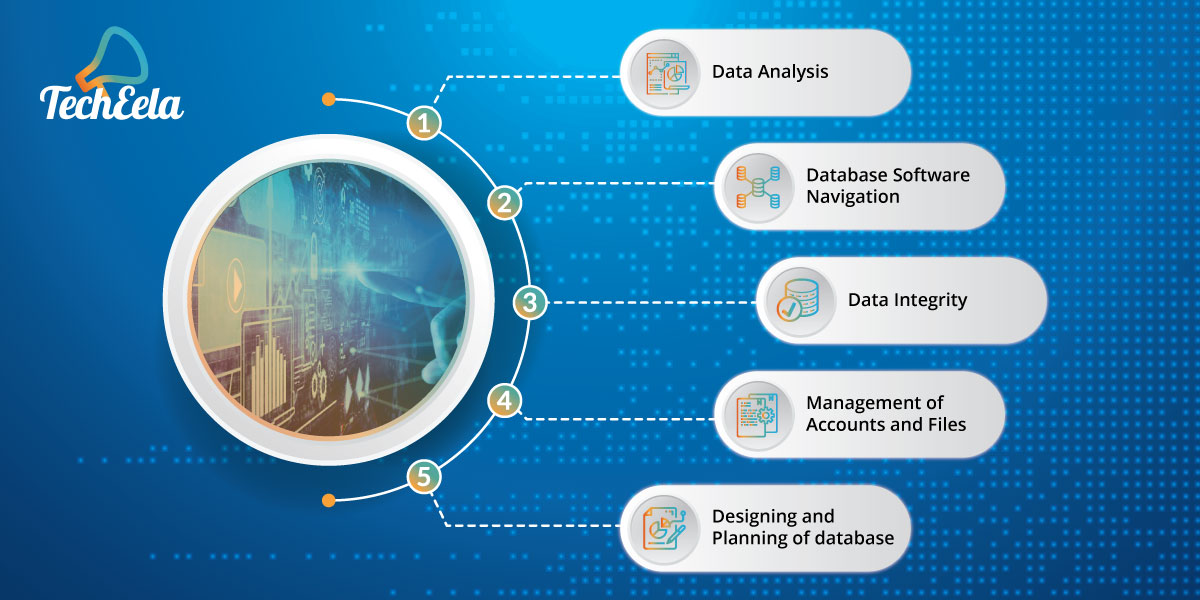
More on Technology
Innominds and Qualcomm Collaborate to Drive Enterprise Digital Transformation with High-Compute Edge AI Platform
-
Team Eela
Data management refers to the practice of managing the data by different processes such as storing, maintaining, protecting, organizing, and processing the data retrieved by an enterprise from various sources safely and securely with utmost efficiency. The main aim of data management is to reduce the risks related to data processing and provide accurate data to people and organization. Data management helps in better optimization of data and in turn, helps make better business-related decisions keeping in mind the rules, regulations, and policies of the business.
To manage the data in modern business, you need to implement various methods to benefit your organization. These methods are known as data strategies. A data strategy or a data management strategy is defined as the planning or strategy that is designed specifically to achieve long term business goals at a greater level. Nowadays Data strategy has become a significant part of organizations to create value out of their data.
To make sure that the data in organizations is accurate, available and accessible at all times, we require various data management process that consist of various functions. These tasks are majorly performed by the data management teams along with the IT department. However, the end-users or the business users also become a part of the entire process as the data is supposed to meet their demands as well to get them on board with policies making its use.
Management of data in the modern business in an enterprise consists of different kinds of tasks, processes, policies and practices. Therefore, there is a lot of scope in data management in terms of:
A proper data management strategy helps in tracking users’ activity and administrators. It also helps to find out whether data management technology is capable of fulfilling the needs and requirements of an organization, also if it is helpful in deriving data value.
For a smooth sailing of data management, we require data management platform which collects and analyzes large data sets across an organization or an enterprise. These platforms are the foundation where data is collected in huge volumes. Apart from this, there are commercial data platforms, which consists of different software tools for management. They are designed by the vendors of database or third-party vendors. These platforms help data management team or IT department consisting of data engineers in performing various tasks like:
The cloud data platforms are becoming extremely popular these days as they allow organizations to move upwards or downwards in a manner which is fast and cost-effective. Some of these platforms are even available as a service, to help save business more money.

Data management is of various types:
To make sure that the organization is working on the correct, accurate and truest information we require master data management. It helps in reducing the unnecessary data processing. And the techniques in master data management collects data from diverse sources and display it as one fixed and reliable source. The tools in MDM come in handy to make any reforms in the data.
A data steward is responsible for management policies regulations. They must keep a check on data collection, make sure if correct practices are being implemented and executed abiding rules while performing organizational tasks.
Data quality management is responsible for finding out any hidden or underlying data management mistakes or errors and any discrepancies in the collected data. Data quality managers are required to perform these tasks on a regular basis.
data security is the most integral part of data management. It is the utmost key step in data management and implementing DevSecOps helps to maintain data security by ensuring that there are security checks at every level be it the developmental phase or during the exchange of information. Data security specialists are required to do encryption management. Their job is to prevent any unauthorized access and look for any accidental movement or deletion or other forthcoming obstacles.
As the name suggests, data governance is referred to the governing of data inside an organization. Data governance is responsible for setting the precedents and laws for the state of information in an organization. A data governance framework is similar as that of a constitution as it also helps in implementing the policies, rules, and regulations for the data related processes. Data governance is responsible for protecting the data and it overlooks the above-mentioned areas such as data stewards, data quality management, data security as well.
Big data has become widely popular nowadays as it helps in the data management of raw rata. Big data in simpler terms means data in substantial amounts, the collection and analysis of large data sets is referred to as big data management and is done using tools of big data in modern businesses.
It is the process of collection enormous amounts of information by an enterprise. A data warehouse consists of more than one database and inside each database there are rows and columns in the form of tables. Data warehouse management is a process in which the raw data is analyzed in depth to derive various insights about business as well as to supervise the cloud-based infrastructure to accumulate raw data.
In today’s date, data is the most powerful asset any business or organization can have. Data helps make sounder business-related decisions, product enhancement, marketing campaigns, building better customer relationships etc., while cutting down the overall costs all to gain profits. But to achieve all these goals, an organization requires a proper data management strategy and a lack of one can hinder the organization’s growth.
The importance of data management has grown vastly as organizations are getting more regulated in terms of data security, data privacy and laws (I.e., GDPR and the California Consumer Privacy Act) have also come into the picture. Apart from this, companies’ data consumption has swollen immensely with the increasing number of data types and database systems in big data. If one is not equipped with good data management, it becomes tough to achieve long term goals and generate revenue. Some of the most significant reasons why data management is important are:
In today’s date, data is the most powerful asset any business or organization can have. Data management helps make sounder business-related decisions, product enhancement, marketing campaigns, building better customer relationships etc.
If there is a secure gateway to the data to be accessed, it will ultimately reduce the risks of data leaks or any kind of data loss. Relying on safe and trusted sources helps in reduction of data loss.
In the age of social media where all our personal and confidential data is out there, mindful data management practices help in keeping the confidentiality of such personal data for e.g., contact numbers, addresses, bank account details etc.
If organizations follow data management strategies from the start itself there will be lesser chances of expenditure on resolving poor management issues and they can save a fortune as well as succeed in a smooth functioning of the business.
If all the above practices are followed diligently and the data available is accurate and reliable, this will eventually result in increased efficiency and productivity of the employs in the organization. As they can perform their tasks in lesser time yielding more productivity.

Data management processes require certain set of skills to successfully implement the data strategies as well as achieve high-level goals. They are:
Data management helps organizations in numerous ways by identifying and resolving underlying errors and help provide a better customer experience altogether.
For starters, data management gives organization insights about how to measure that truckloads of data that they have. Data management helps business managers look at the larger picture in order to gain perspective and have a better approach towards growth and planning.
As soon as the data management strategy is in place, data can then be used to dig gold in terms of business: business intelligence. Digging for useful information can help enterprises in a lot of ways such as:
Major challenges in data management are:
Data management comprises of various processes such as storing, maintaining, protecting, organizing, and processing the data retrieved by an enterprise from various sources safely and securely with utmost efficiency. Several types of data management include Master Data Management, Data Steward, Data Security, Data Governance, Data Quality Management, Big Data Management and Data Warehousing. Data is important to make better business-related decisions, aid in product enhancement, marketing campaigns, building better customer relationships etc.
To execute these practices, skills like data analysis, data integrity, database software navigation, accounts and files managing, and designing and planning databases are required. Data management comes with its own advantages and disadvantages, but if correct data management techniques are implemented, a business can reach greater heights and achieve all the long-term goals.

More on Technology